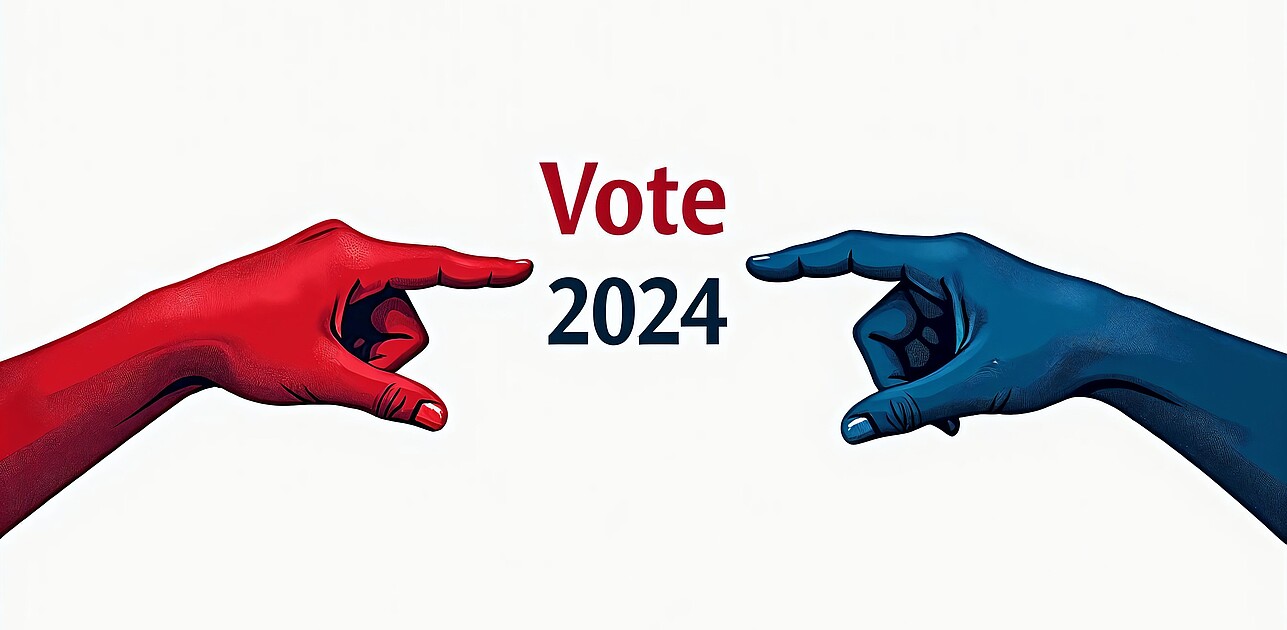

Article: Monday, 16 December 2024
In the United States, contributions to political campaigns from mega-donors have grown significantly, particularly since the landmark Supreme Court decision in Citizens United v. Federal Election Commission in 2010. As a result, legislators' voting patterns have increasingly aligned with the interests of the affluent and become less attuned to the priorities of lower-income constituents. Dr Guosong Xu, Assistant Professor of Finance at Rotterdam School of Management, Erasmus University (RSM) found there is indeed a causal link between large donors’ campaign contributions and how legislators vote and represent the wealthy versus how they represent the poor. His paper, co-written with Dr Ilona Babenko of Arizona State University and Dr Viktar Fedaseyeu of China Europe International Business School (CEIBS), is titled Mega-Donors and Representation of the Wealthy in the Wake of Citizens United and was published online in September.
The dramatic rise in political spending by the wealthy over the last decade has concerned the majority of American voters. The 2016 Rasmussen Reports and Pew Research Center in 2023 showed that people would prefer to reduce the influence of big campaign donors on the federal government because of widespread concerns that large donations could skew political representation toward the interests of the wealthy over those of the poor. But academics have found it difficult to prove the connection.
“You could argue that politicians' alignment with wealthy people’s interests attracts more donations rather than those donations causing alignment. But the persistence of income inequality in the US is still puzzling. There’s a standard median-voter model that indicates income inequality should gradually self-correct because theoretically, dissatisfied median voters would vote legislators out of office if the majority’s interest is not well represented, but we’re not seeing this,” said Dr Xu.
Dr Xu and his co-researchers studied the Federal Election Commission Supreme Court decision, which increased the ability of the wealthy to finance political campaigns through newly created and tax-exempt campaign finance vehicles called Super PACs (political action committees). They enable politicians – who can also be candidates for the Presidency, Senate and the House – to solicit and spend unlimited funds from large donors. Super PACs play an increasingly important role in US elections. “Because the ruling directly affects large donors’ ability to influence political campaigns, we could study how large donors responded to the court ruling and how legislators voted after receiving an influx of funds from these large donors. It created a natural experiment for us to determine whether large donors’ contributions affect political representation,” said Dr Xu.
The researchers used the Federal Election Commission’s 46 million records of individual donations between 2003 and 2018 and classified them into ‘mega-donors’ and other donors, according to whether the donor’s total electoral donations puts them in the top 1 per cent of all donors in an electoral cycle.
They also tracked how elected congresspeople voted using a nationally representative survey, the Cooperative Congressional Election Study (CCES), which asks respondents for their preference toward specific policy issues such as Medicare, and for their demographic and income information. “We could then measure how often a politician votes in line with the preferences expressed by constituents from different income brackets.”
The researchers found a large increase in the proportion of total contributions coming from the top 1 per cent of donors after the Citizens United court ruling. Before that ruling in 2010, the top 1 per cent of donors accounted for approximately 7.4 per cent of all donations. After 2010, they more than doubled to account for 20.1 per cent. “The surge in mega-donors’ donations is potentially worrying because they don’t appear to be representative of the American population. In fact, the amount of mega-donors’ political donations exceed the median household income for the US.”
More than 71 per cent of these mega-donors are male, 48 per cent have been a CEO or held a similar title, and more than 12 per cent are outright billionaires or closely related to one.
“Most importantly, we find that US Senators and House Representatives were 2.1 per cent more likely to vote in line with the interests of the top three income brackets following the Citizens United court ruling. But at the same time, the alignment between legislators and voters from the bottom three income brackets decreased by 4.2 percentage points. That makes the difference 6.3 percentage points. This pattern holds for both Republican and Democratic legislators.”
This increase in political alignment was more pronounced for bills that dealt with fiscal matters, probably reflecting the fact that top earners have more convergent – and mostly conservative – views on economic policies such as taxation, regulation and social welfare programmes. “We also find that the shift in political representation towards the wealthy is stronger for bills about which wealthy and less affluent people hold particularly divergent views.”
The researchers found that politicians who relied most heavily on contributions from mega-donors were driving the alignment with affluent interests. “This evidence suggests that it is indeed the political giving that affects the changes in political representation.”
These findings are important for understanding today’s political polarization and income inequality, particularly in the US. And when increased concentration of campaign finance has shifted political outcomes in favor of the wealthy, they may help to explain the persistence of income inequality in the US. “Our evidence is consistent with ‘democracy capture’. Elites invest in the de facto political power by controlling parties, media, or policymakers.”

Read the full paper Mega-Donors and Representation of the Wealthy in the Wake of Citizens United on SSRN.


Science Communication and Media Officer
Rotterdam School of Management, Erasmus University (RSM) is one of Europe’s top-ranked business schools. RSM provides ground-breaking research and education furthering excellence in all aspects of management and is based in the international port city of Rotterdam – a vital nexus of business, logistics and trade. RSM’s primary focus is on developing business leaders with international careers who can become a force for positive change by carrying their innovative mindset into a sustainable future. Our first-class range of bachelor, master, MBA, PhD and executive programmes encourage them to become to become critical, creative, caring and collaborative thinkers and doers.
